Hold the Chicken: KFC Is Testing Lab-Grown Nuggets

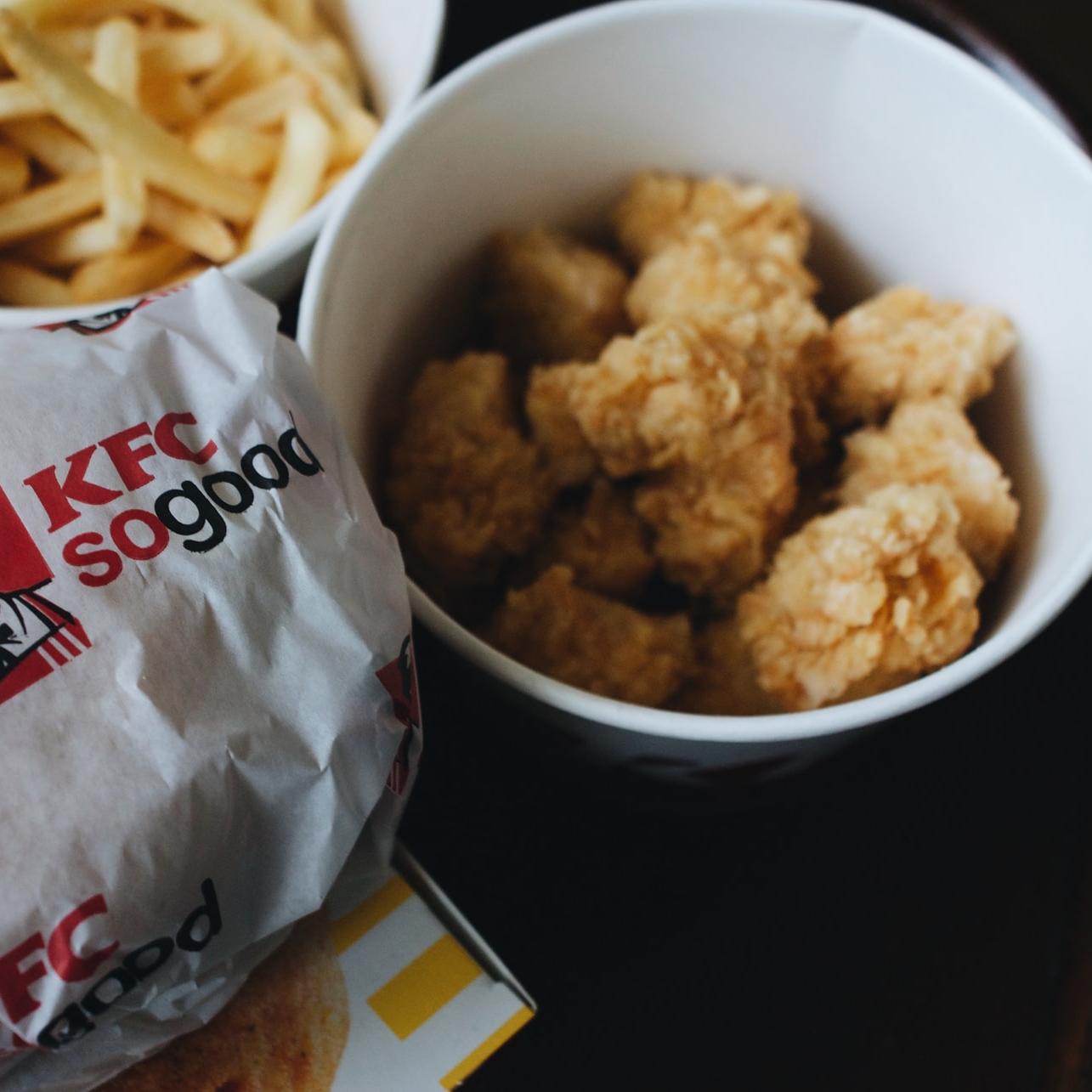
Image: KFC says it’s embarking on a trial run of lab-grown chicken nuggets as alternative to its popular popcorn nuggets, shown above.
The Colonel and KFC are jumping into the laboratory meat (also known as “cultivated” or “clean” meat) sector, with expectations that once the final product launches, the results will be finger-lickin’ good.
KFC has jumped on the lab-grown meat bandwagon
The fast-food giant says it is collaborating with Russian company 3D Bioprinting Solutions to develop the first lab-created chicken nuggets using 3D-printing technology. The process involves employing additive bioprinting technology using chicken cells and plant material, with the final product having the taste and texture of chicken meat. For its part, KFC will provide the coating and the Colonel’s special blend of herbs and spices.
“Our experiment in testing 3D bioprinting technology to create chicken products can also help address several looming global problems,” said Raisa Polyakova, general manager of KFC Russia and Commonwealth Independent States (CIS), in a prepared statement.
If successful, the 3D-printed nuggets could become a step toward addressing nutritional, environmental and economic issues related to food, including consumers' desire for more healthful foods, the growing demand for meat alternatives and the pressure for more sustainable methods of food production, particularly when it comes to meat.
The long-term environmental benefits of producing lab-grown meat
Lab-grown meat does not require land and other resources, such as water, needed to raise livestock, and spares the lives of animals. It also reduces pollution by taking animal waste out of the mix and creates products free of the substances used in animal husbandry. The meat is grown in labs using muscle cells from animals.
The company touted a study published a decade ago in the journal Environmental Science & Technology, which concluded that the cultivation of meat from cells instead of relying on the slaughtering of animals has only minimal environment impact. The practice could also slash energy consumption by more than half, reduce greenhouse gas emissions 25-fold, and use 100 times less land than conventional meat production.
KFC is moving into a rapidly expanding sector, one in which the number of investors and companies trying to create and market clean meat keeps growing. Clean meat companies raised $77 million in venture capital in 2019, according to a report from the Good Food Institute (GFI). “As it becomes clearer that cellular agriculture is the future of animal meat production, increasingly more investors, governments, scientists and entrepreneurs are diving in,” the report noted. “It is now, more than ever, apparent that our current system of meat, eggs and dairy production is vulnerable and inadequate.”
Investors see opportunities in reinventing meat
By the end of 2019, 55 clean or cultivated meat companies had formed worldwide. Out of those, 20 were new in 2019, and the focus of seven of those new to the market is serving cultivated meat companies business-to-business, according to GFI.
One of the earlier entries into the clean meat arena, Memphis Meats, received $186 million in Series B funding earlier this year, which several news outlets, including Forbes, reported is the largest investment in the history of the industry. The company plans to use the money to hire more staff, construct a pilot production facility and, four years after its founding, get its meat products into the marketplace.
Memphis Meats launched in 2016 with $2 million in seed funding. The California-based company has already touted its success creating the “world’s first cultured meatball,” and has developed meat out of pig, chicken and beef cells.
The enthusiasm for lab-grown meat goes beyond the environmental benefits: Advocates of this sector believe that meat grown from cells is the best way to replicate the taste and quality of conventional meat. To that end, some researchers are trying to replicate the meat “feel” as much as they can. In one approach to cell-based meat (CBM) production, a soy protein “scaffold” is used to support three types of bovine muscle tissue to create a product that not only tastes like steak, but also feels more like a steak when it’s eaten.
But while investors have moved quickly to find opportunities in this space, not all efforts have been successful. For example, Hampton Creek, a San Francisco-based company founded in 2011 and known originally for its popular plant-based sauces and spreads, received hundreds of millions of dollars in investment since the mid-2010s and had planned to launch clean meat products in 2018. But the company was accused of buying its own merchandise to increase sales, and some stores yanked products from shelves due to safety concerns. The company has rebranded as Just, and while paring down its offerings considerably, it says it is still working on launching a clean meat product.
Despite some setbacks, researchers see promising results coming from labs, although consumer acceptance will be the real test. As for KFC, the company says the first nuggets are scheduled to be test marketed in Moscow this fall.
Image credit: Aleks Dorohovich/Unsplash
Racial Equity Fund Backed by NAACP Bridges Capital to Cause
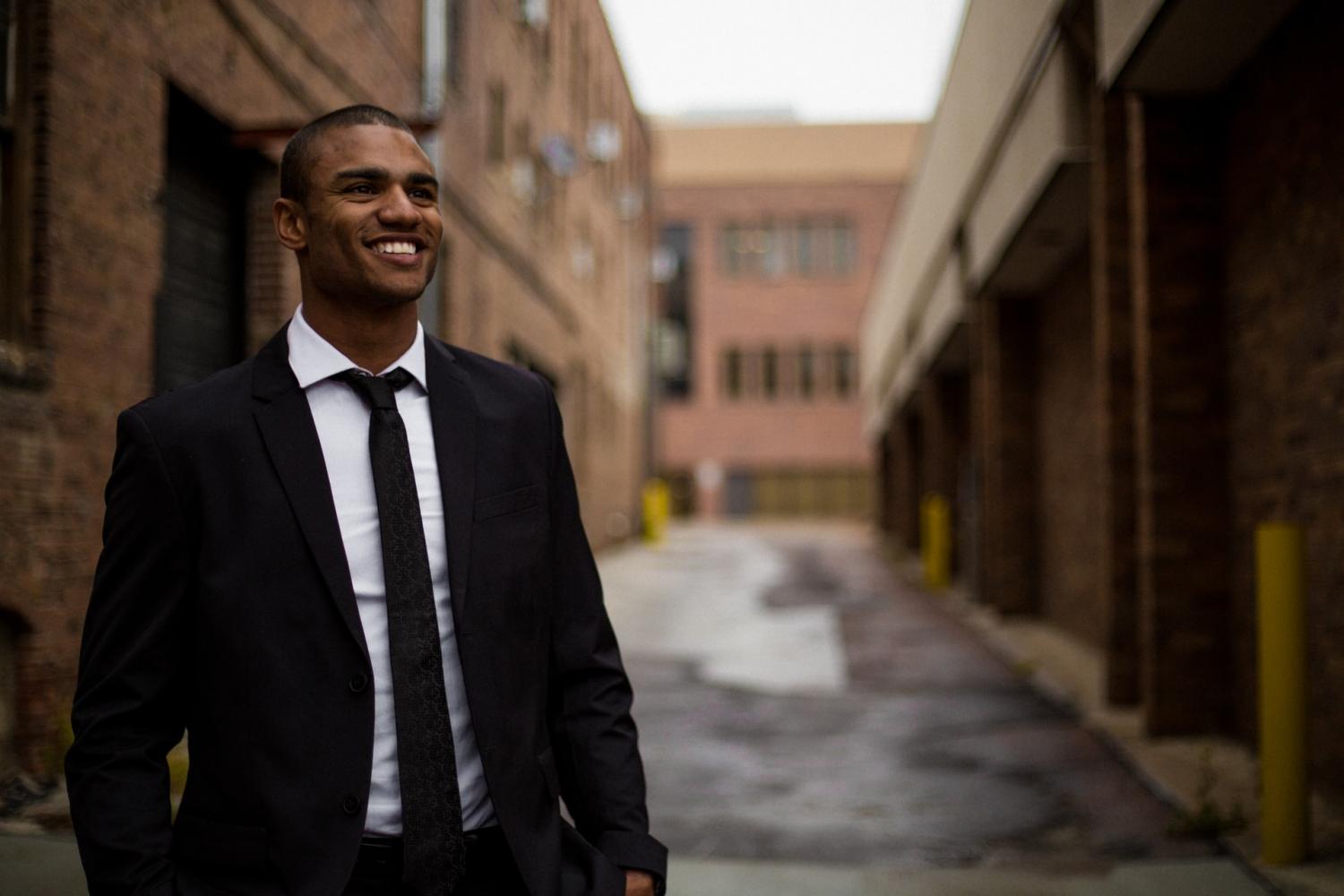

The recent nationwide protests for racial justice are one powerful way to shine a light on systemic racism. But over on Wall Street, bridging capital to the cause is the aim of the market’s only racial equity product: the Impact Shares NAACP Minority Empowerment ETF, or NACP, which recently celebrated its second anniversary. Backed by the NAACP, the country’s leading civil rights organization, the fund is giving investors a lens for evaluating companies with strong racial and ethnic diversity policies.
NACP was launched in 2018 through a collaboration between the NAACP, the Rockefeller Foundation and Impact Shares. It began trading in July 2018, and it remains the only racial equity product in the marketplace. NACP tracks the Morningstar Minority Empowerment Index, designed to provide exposure to companies meeting NAACP criteria. It has also given the NAACP an effective new tool for its economic advocacy in the fight to eliminate racial discrimination.
“Too little attention has been paid to historically marginalized communities,” Ethan Powell, CEO of Impact Shares, told TriplePundit. “Gender funds have become popular in recent years. However, the way in which the private sector can engage communities of color differ from gender-oriented initiatives including digital divide programs and community engagement programs.”
The fund launched at a time when the private sector is facing increasing pressure from investors and other stakeholders to create and implement policies and practices that support racial diversity. Since then, NACP has proven that a socially focused financial instrument can perform well with an annualized two-year return of 11.9 percent. This places it in the top fourth percentile in its Morningstar Category over that period.
“The goal is for investors to achieve an equity market rate of return while leveraging capital and the NAACP's corporate engagement to make meaningful changes in the private sector,” Powell said. “Annually, we reevaluate the screens used to identify companies that are considered leaders in empowering communities of color and we rescore the universe. The goal is to have the solution evolve as data availability, goals of the NAACP and the issues impacting communities of color evolve.”
The NACP’s screens are divided into 10 categories. They include board diversity, discrimination policies and freedom of association, the scope of supplier social programs, and a minority focus in supplier monitoring. Screens also look for initiatives to address the digital divide, a diversity program, a community development program, and a minority-focused health and safety system. Each company is evaluated relative to their direct competitors. The goal is to identify 200 corporate leaders across all sectors.
The NACP’s current holdings list includes a range of Fortune 500 companies, such as tech giants Alphabet Inc, the holding company for Google, along with Apple and Intel. The list also includes leaders within the finance sector like Bank of America and JPMorgan Chase. In addition, the pharmaceutical, automotive, food and retail sectors have representation with companies such as Abbott, Ford, Kellogg, Merck, McDonald's and Starbucks. “Inclusion represents a company's leadership position in their sector,” Powell explains. “Position sizing has more to do with minimizing tracking error to the broader equity market.”
Since the Black Lives Matter movement has gathered steam across the nation, Powell said he has seen a resurgence in interest in the NACP. In fact, as 3p has reported, investing through an environmental, social and governance (ESG) lens has been on the upswing, appearing to be pandemic-proof. “Investors, the public sector and general population are reevaluating their role in racial empowerment and recognizing the efficacy of the NACP solution — not least, because, among some 600 ESG funds, it is the only one solely focused on issues impacting communities of color.”
For the NAACP, the fund has been an important part of its strategy for corporate engagement, Marvin Owen, senior director of the NAACP's economic department, told 3p. “NACP has provided the NAACP with important advocacy, as social change is being driven by capital markets, and specifically investor sentiment," he said. "Examples of impact include the numbers of firms that have sought out engagement with the NAACP with the expectation of identifying best practices in recruiting African-Americans for C-suite and board opportunities, as well as best practices in establishing impactful supplier diversity programs.”
Image credit: Taylor Grote/Unsplash
The Value in ESG for the Workforce And Investors Is Greater Than Ever (Here's Why)
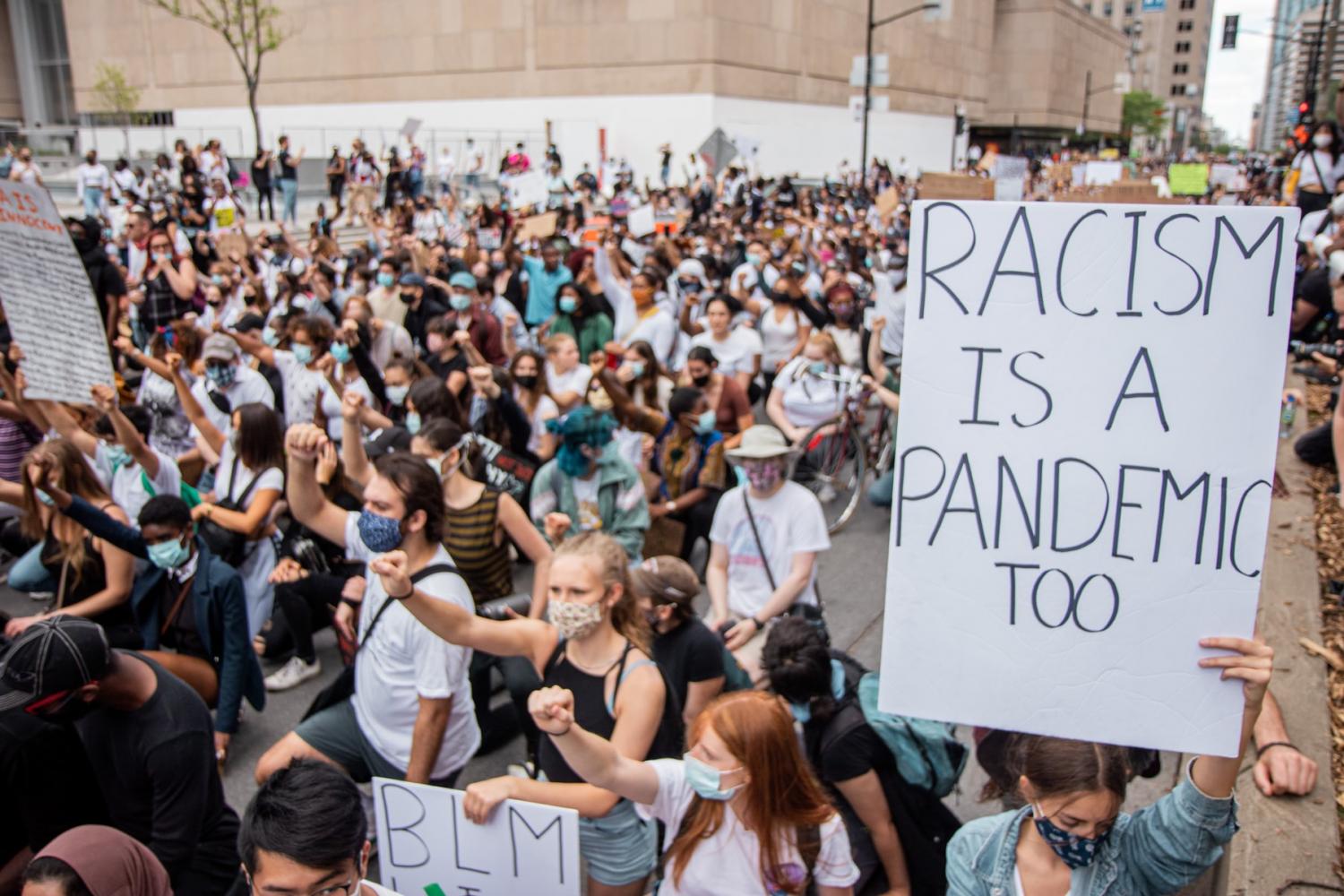
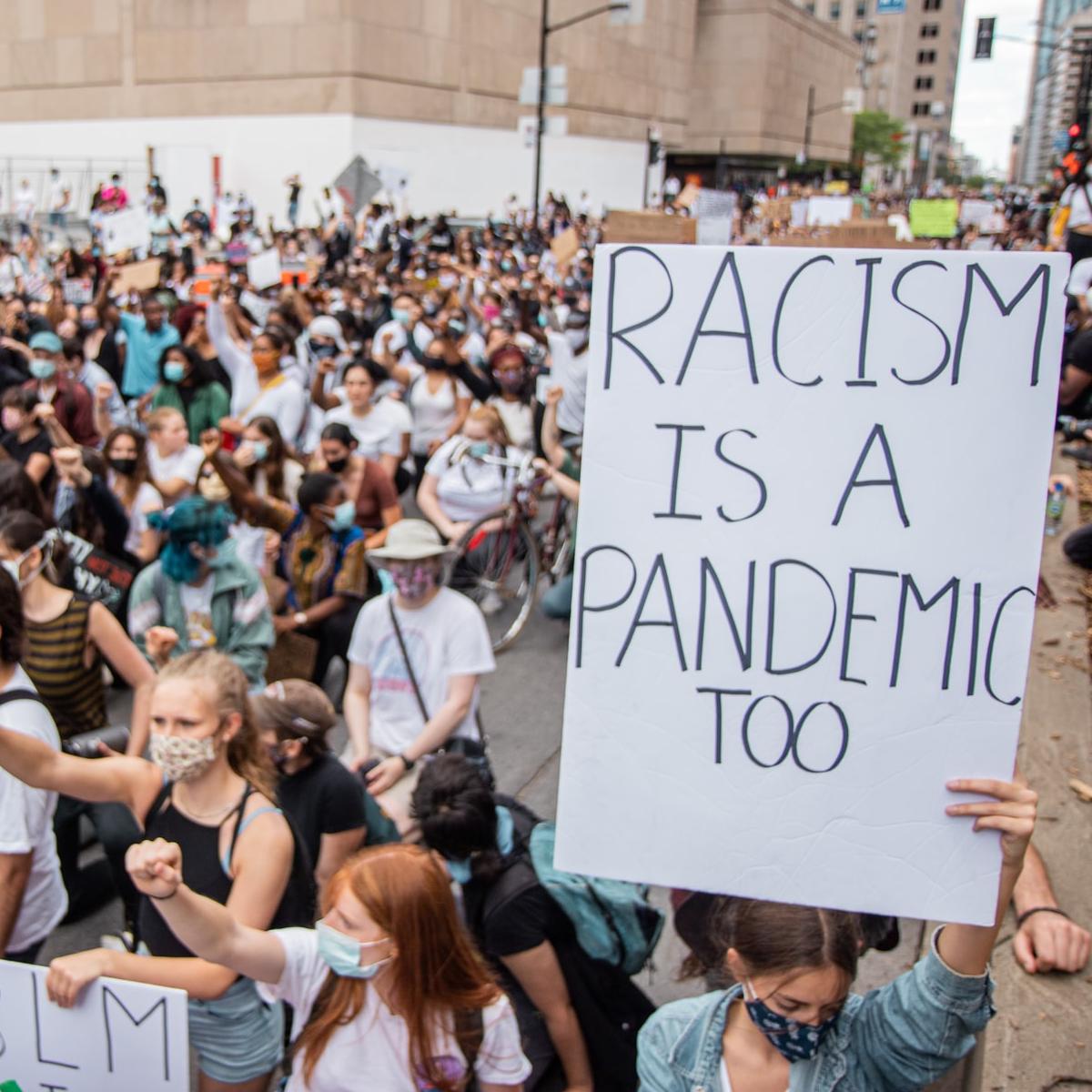
In public relations, there’s a saying: “Don’t let a good crisis go to waste.”
Sadly, some companies haven’t abided by this old adage, and to their detriment.
Amid the COVID-19 pandemic, some brave companies – clearly focused on people over profits – did things like Allstate giving $600 million back to customers because, obviously, there are fewer car accidents when everyone’s stuck at home watching YouTube. Meanwhile, other companies – notably some automobile manufacturers – still seemed intent on selling us a new vehicle (but don’t worry, you can defer payments ‘til this is hopefully all over).
Why does this matter so much?
These companies’ actions matter because we live in unprecedented times. In a newly transparent world, we can peer into the windows of companies to see whether or not they are being honest about what’s going on in the world, what’s happening in the minds of consumers, and what’s occurring within their own ranks of employees, partners and customers.
As a society, we’re growing increasingly aware about workers’ rights, social justice, climate change and more, because we now know how companies are taking a stand on these issues, or not.
And the spotlight has perhaps never shone brighter than right now in the middle of a global pandemic.
In fact, a recent investor survey, that queried participants totaling nearly $13 trillion in assets under management found that more than 70 percent believe unforeseen events like COVID-19 will spark investor interest in tackling issues like the climate crisis. And more than 50 percent said the pandemic would be positive for ESG (environmental, social and governance) momentum over the next three years.
This makes sense since, with more information, we investors will invest more thoughtfully and in places that align more closely with our values. After all, we investors have reputations to protect, too, and no one wants to be responsible for taking our bright future away from younger generations.
In a way, the pandemic has accelerated the ESG movement faster than any of us might have imagined: It has given us more free time to research, a bigger spotlight on what companies are doing in a crisis, and a rare opportunity to step back as a community to ask ourselves how the public and private sectors help or hinder us lowly consumers with their beliefs, values and actions.
Meanwhile, thanks to organizations like Just Capital, we can measure outcomes based on ESG factors like never before, with research showing that companies that act more justly — more honestly on issues important to the consumer public — earn a return on equity (ROE) that is 6.4 percent higher than peers who don’t rank well on matters like workers’ rights, environmental issues and more, giving organizations a real monetary incentive to start caring about not only what they do, but also how they do it.
No matter what happens in the coming months, long-term ESG trends will only grow until they become not a factor but the factor in how we invest our time and money, both as investors and as more thoughtful consumers and employees. It is inevitable because, as I’ll paraphrase from Martin Whittaker, the CEO of Just Capital and one of the amazing CEOs I interview in my book, folks behave differently in the light than they do in the dark.
No matter what, history will be on the side of honesty and transparency here, if for no other reason than we now have more knowledge and awareness about ESG-related issues than ever before.
For some companies this will be a death knell. For others, however, the truth will set them free — and the environment, our fellow citizens and the free-market economy we depend on will all be better off for it.
Image credit: Ying Ge/Unsplash
Sustainability Reporting by the Largest U.S. Companies Hits New Highs
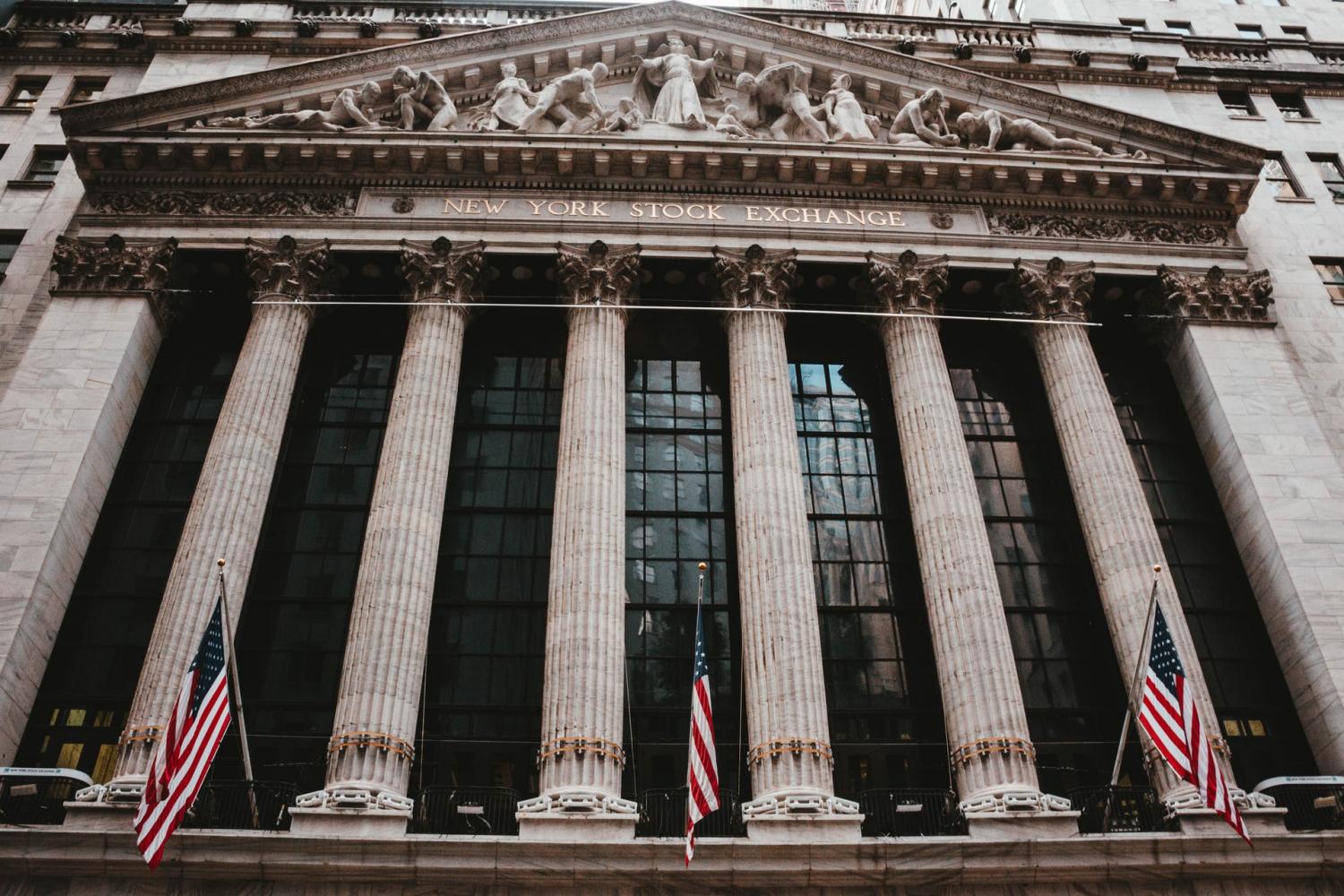
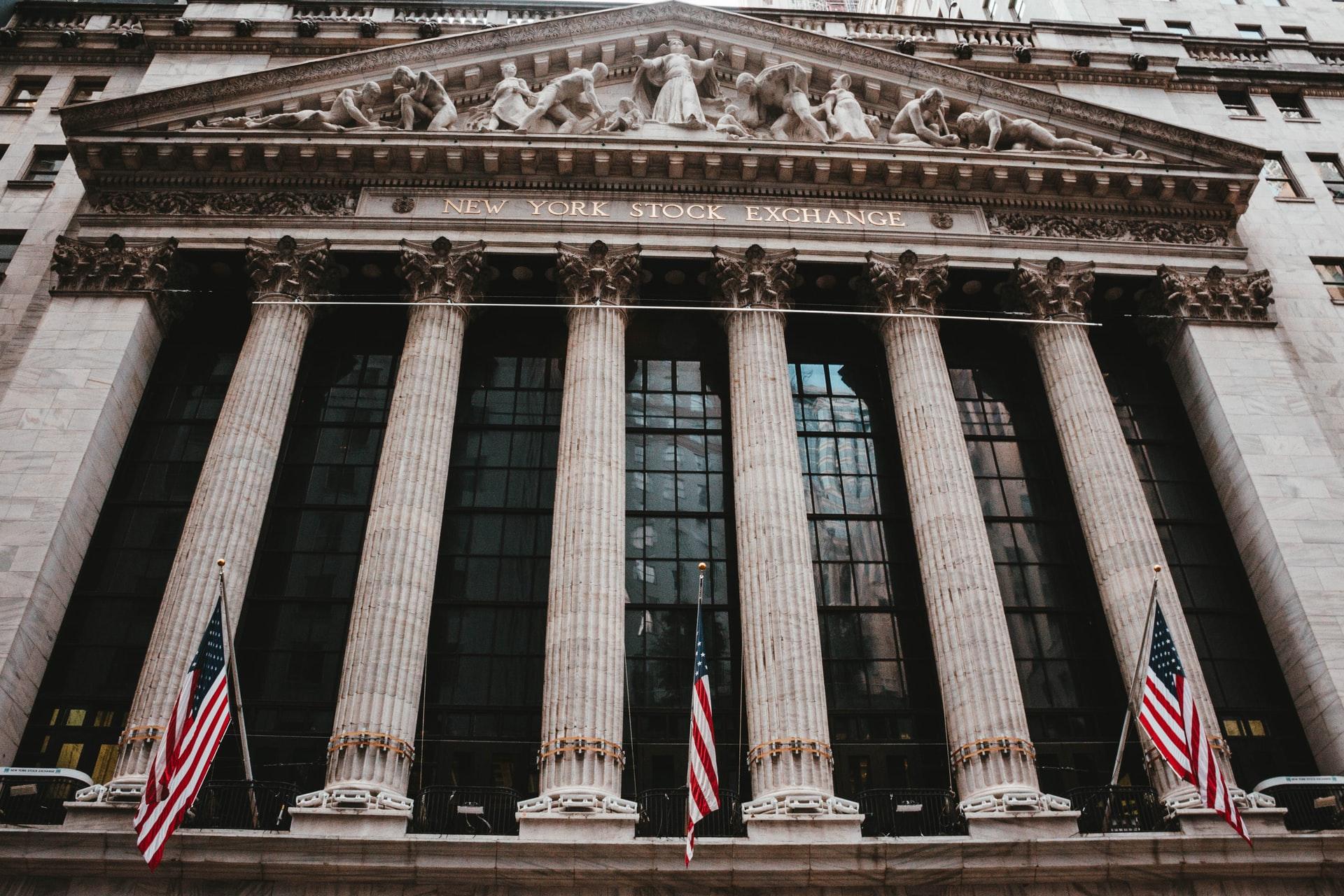
Amid growing pressure from investors, America’s largest corporations are embracing sustainability reporting.
Nine in ten companies on the S&P 500 index, one bellwether of U.S. stock market performance, published sustainability, corporate responsibility or citizenship reports in 2019. That’s up from only 20 percent in 2011 and 86 percent in 2019, according to Governance & Accountability (G&A) Institute findings released this week. And companies are deploying significant resources to detail their environmental, social and governance (ESG) performance against a wide range of voluntary standards and frameworks utilized by investors, raters and rankers. Foremost among these are CDP (65 percent of reporters) GRI (51 percent), the U.N. Sustainable Development Goals (36 percent) and SASB (14 percent), G&A found.
Investors help spur sustainability reporting
What’s driving such a big shift in sustainability reporting in under a decade? The first and likely most important factor is investors. Pressure is growing on companies to manage ESG risk and harness related opportunity from across the investment spectrum. Half of all U.S. individual investors now practice sustainable investing, while 80 percent of institutional asset owners use an ESG lens in their investment process, according to surveys by Morgan Stanley.
Global asset management firms, in particular, are increasingly vocal in their demands for greater sustainability disclosure, especially on climate risk and impacts. BlackRock, for example, has voted against 53 portfolio companies so far this year that it judged to be making insufficient progress on integrating climate risks into both business models and disclosures. Chevron, ExxonMobil, Daimler and Volvo were among the culprits, and the investment giant has put a further 190 companies “on watch.”
Both BlackRock and State Street Global Advisors have urged public companies to use SASB’s reporting standards which focus on sector-specific material ESG issues.
Consumers and employees are engaged in ESG performance
More than ever, consumers and employees are also making purchasing and employment decisions with an eye to how brands behave on environmental and social issues. In a 2019 Fast Company survey of 1,000 employees at large U.S. companies, more than 70 percent said they were more likely to choose to work for an organization with a strong environmental agenda. And in recent months, workers have flexed their muscle at Facebook and Amazon over providing a platform for misinformation, inaction on climate change and working conditions, respectively.
This trend is likely to intensify as employees voice concern and demand employer action over the systemic social and racial inequities unmasked by the COVID-19 pandemic and the new wave of Black Lives Matter protests. For example, 71 percent of U.S. adults now say corporate brands have a role to play in responding to racial injustice, according to a recent survey by Opinium.
Adding to the pressure on companies, regulators are also getting in on the act. There are now more than 180 ESG-related corporate disclosure regulations in place globally, with the European Union’s Nonfinancial Reporting Directive at the forefront. The United Kingdom government also expects all listed companies to report material information on climate change governance, risks and metrics in line with the recommendations of the Task Force on Climate-Related Financial Disclosures (TCFD) by 2022.
Bottom-line benefits of sustainability reporting
There are also more positive incentives for companies to embrace sustainability disclosure, namely growing evidence that doing so can boost the bottom line. For example, analysis by Boston Consulting Group found that top performers in ESG information benefit from stock market valuations as much as 19 percent higher than average ESG performers, while margins can be up to 12 percent higher.
Of course, disclosure alone doesn’t equate to meaningful action. But it is harder for companies to stand still on sustainability issues when their record and progress — or lack thereof — is on public display.
Hank Boerner, chairman and chief strategist of the G&A Institute, says embracing greater ESG disclosure has pushed corporations, in turn, “to achieve industry leadership, gain a competitive advantage and, very importantly, to excel in the competition for capital. We would ask the remaining 10 percent of non-reporters in the S&P 500 universe, what are you waiting for?”
Image credit: Aditya Vyas/Unsplash
Voices Are Silenced as COVID-19 Spreads Through Immigrant Detention Centers


The COVID-19 threat is likely to have a huge impact on the world for the foreseeable future. Public health experts recommend strategies such as social distancing, frequent hand washing and wearing a mask to help stop the spread of the deadly virus. But what happens when a person's entire living situation makes it challenging — and often impossible — to follow these measures? Such is the case for many immigrants who came to the United States to apply for asylum and found themselves in one of the country's immigrant detention centers.
Many of these immigrants arrive here with histories filled with violence, poverty and other tremendous hardships. They put their lives on the line to reach the U.S. after concluding their current situations were too dangerous, and no better options existed.
The heartbreaking reality is that many got to this country and traded their previously life-threatening conditions for others, having no choice but to stay in overcrowded immigration detention facilities during a pandemic.
The feds review immigrant detention centers, and the results are horrific
As statistics showed COVID-19 cases in immigrant detention centers rising — and some news outlets reported deaths — federal government officials surveyed 188 facilities to get workers' input on several crucial, timely matters. Their report confirmed a 496 percent increase in the number of detainees testing positive for the coronavirus. That jump happened across only four weeks.
Most of the study's respondents felt prepared to handle COVID-19 but worried about what might happen if the virus continued to spread. Many also commented that social distancing was virtually out of the question. Another problem was that facilities admitted not having enough dedicated areas to isolate people with suspected infections.
Moreover, 29 percent of facilities did not have negative pressure ventilation systems to stop the spread of airborne infections associated with suspected cases. Health officials acknowledged that COVID-19 can stay suspended in the air depending on certain factors, such as humidity.
In addition, COVID-19 research indicates that indoor air contains the most contaminants, and recycled air causes the infections to spread more. The government's documents showed that as many as 75 people live together in "pods" while detained, increasing the likelihood of rampant transmission.
Despite those findings, the government officials overseeing investigations did not make recommendations for mitigating the issues and keeping people safer. Those authorities also did not get the perspectives of the detainees themselves — only the employees at these immigrant detention centers.
Detainees face punishment for speaking out
The people housed in immigrant detention centers aren't staying silent about this issue. The trouble is their actions may not be noticeable enough to spark widespread change. One investigative report profiled how some people planned strikes within the facilities but ultimately called them off. They encountered obstacles when trying to spread the word outside of the pods where they lived.
However, some residents persisted by creating and holding signs to convey their distress and highlight the dangers within their environment. Some information eventually spread to the outside when a detainee's boyfriend recorded footage from a video chat and distributed it online. Making such decisions comes with risks, though. Some guards take disciplinary action and even use excessive physical force against those who try to show their plight, according to the investigative report.
After some detainees used a video app to draw attention to the severity of their circumstances, they were put into solitary confinement. A representative from one of the detention facilities involved confirmed that people risk such consequences for disrupting a facility's orderly operations. Group protests automatically break the rules. Individuals band together and accept what might happen, knowing the public health dangers outweigh potential punitive action.
How can people fight back against this injustice?
Staying silent about this gross injustice is a virtually guaranteed way to help it flourish. The COVID-19 pandemic is terrifying enough for people who have access to protective equipment and can socially distance. Many detention center residents make masks from socks, knowing there's no hope of staying safely apart from others, but wanting to do anything they can.
Those on the outside can advocate for improved conditions by sharing the stories of legal professionals and others on the front lines working to combat these human rights violations within detention centers. Go beyond posting short status updates, and link to material that gives firsthand perspectives from those affected and the people working hard to help them.
It's also helpful to stay abreast of recommended policy changes provided by people who want to make these detention centers safer. Advocates suggest providing occupants with coronavirus tests upon arrival at facilities, giving them adequate hygiene supplies and stopping detainee transfers. Many experts want to go further by eliminating the mandatory detention imposed on all asylum seekers.
People can also donate to organizations that are actively working to assist people in detention centers, too. They made positive impacts against strong headwinds before the coronavirus came to the U.S., and you can rest assured your money will go an especially long way now.
Human Rights Watch ran an online petition to free asylum seekers during the pandemic, while the American Civil Liberties Union (ACLU) offers an assortment of statistics to illustrate its ongoing impact.
In Texas, the nonprofit RAICES and other organizations across the Lone Star State are doing what they can to assist immigrants, and could all use individual or corporate support.
Awareness can add momentum to the push for change
It's easy to feel discouraged and that problems like the ones happening in immigrant detention centers are too big to conquer. However, don't lose sight of the fact that you can help make a difference by telling others what you know and urging them to act along with you. Informed conversations are essential ingredients for persistent change.
Image credit: Sean DuBois/Unsplash
A Quick Guide to Socially Responsible Investment Ratings
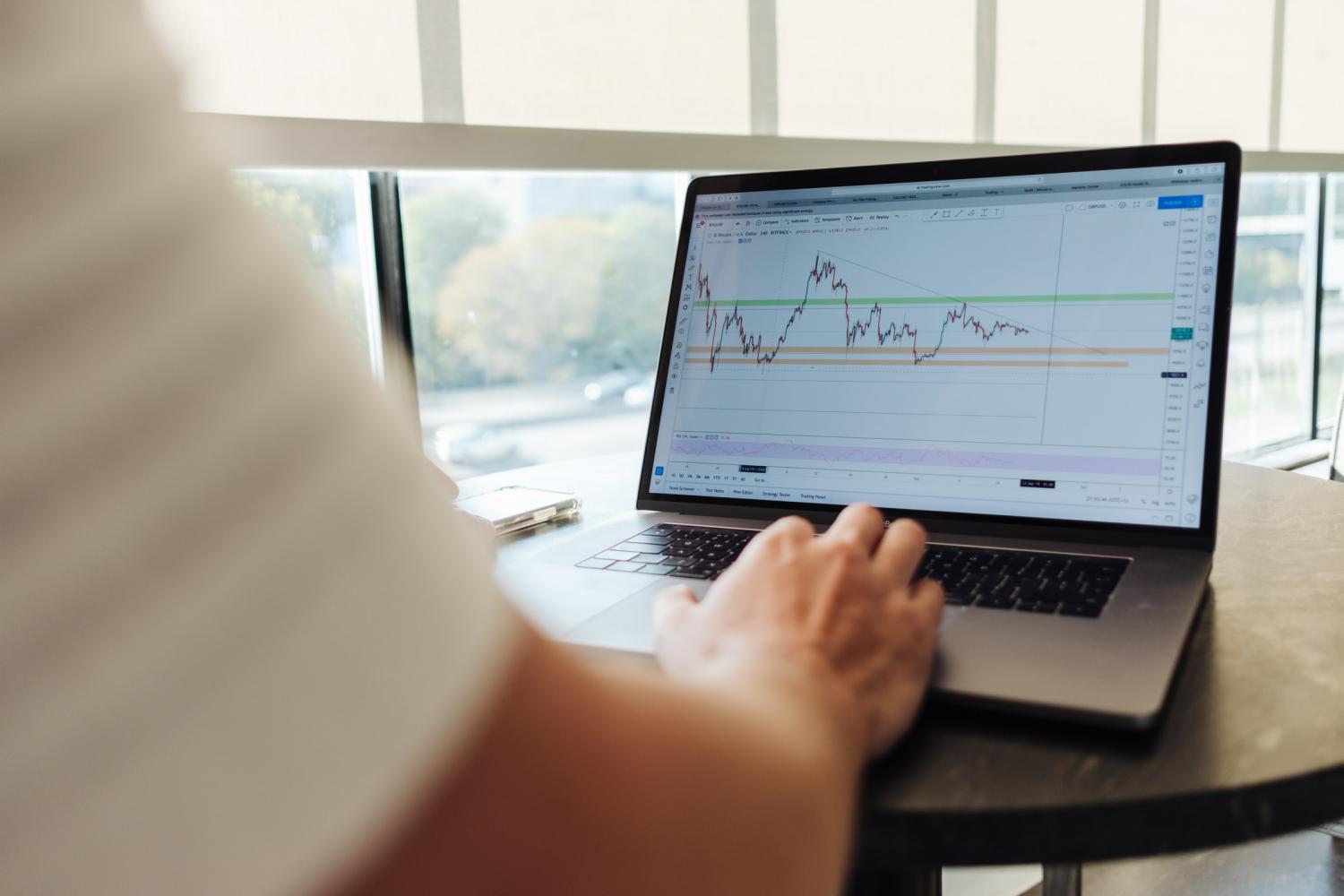

Investors are now using various ratings and reference indices to evaluate financial and socially responsible investment (SRI) portfolios. Typically, SRI indices constitute a relevant proxy as they evaluate the environmental, social and governance (ESG) performance of listed businesses. A large number of SR contractors, analysts and research firms are increasingly specializing in the collection of ESG information as they perform ongoing analyses of corporate performance. Many of them maintain a database and use it to provide their clients with ESG analyses - including proxy advice - benchmarks and information about engagement strategies of different corporations. They publish directories of ethical and SRI funds - as they outline their screening criteria. In a sense, these data providers support the responsible investors in their selection of funds.
KLD / Jantzi Global Environmental Index, Jantzi Research, Ethical Investment Research Service from Vigeo EIRIS and Innovest are among the firms that analyze the corporations’ socially responsible and environmentally-sound behaviors. Some of their indices shed light about the impact of products, the production processes, or investments in renewables or recycling. Similarly, social issues are also a common category for these services that evaluate socially responsible investment portfolios.
Generally, socially responsible investment indices benchmark different types of firms hailing from diverse industries and sectors. They adjust their weighting on specific screening criteria as they choose which firms to include - or exclude - from their indices. One of the oldest SRI indices for CSR and Sustainability ratings is the Dow Jones Sustainability Index (DJSI). The companies that are featured in the DJSI are analyzed by the Sustainable Asset Management (SAM) Group.
Another popular SRI index is FTSE Russell’s KLD’s Domini 400 Social Index (also known as the KLD400) which partners with the Financial Times (FT) on a range of issues. Similarly, FT partners with an EIRES, an ESG research firm, to construct its FTSE4 Good Index series. Smaller FTSE Responsible Investment Indices include the Catholic Values Index, the Calvert Social Index, the FTSE4Good indices and the Dow Jones family of SRI Indices.
The KLD400 index screens the companies’ performance on a set of ESG criteria. It eliminates those companies that are involved in non-eligible industries. Impax, a specialist finance house that focuses on the markets for cleaner or more efficient delivery of basic services of energy, water and waste also maintain a group of FTSE Indices that are related to environmental technologies and business activities.
The Catholic Values Index uses the U.S. Conference of Catholic Bishops’ Socially Responsible Investment guidelines to scrutinize eligible companies, as in corporations with generous wage and benefit policies, or those who create environmentally beneficial technologies. This index excludes certain businesses trading in “irresponsible” activities.
Calvert Group’s Calvert Social Index examines 1,000 of the largest U.S. companies according to the social audit of four criteria: the company’s products, their impact on the environment, labour relations, and community relations. The latter “community relations” variable includes issues such as the treatment of indigenous people, provision of local credit, operations of overseas subsidiaries, and the like. The responsible companies are then featured in the Index when and if they meet Calvert’s criteria. This index also maintains a target economic sector weighting scheme.
Other smaller indices include; Ethibel Sustainability Index for Belgian and other European companies and OMX GES Ethical Index for Scandinavian companies, among others. Generally, these SRI indices are considered as investment benchmarks. In a nutshell, SRI Indices have spawned a range of products, including index mutual funds, ETFs, and structured financial products. Many SRI mutual fund managers are expected to consider other important criteria such as risk and return targets. For instance, iShares lists two ETFs based on the KLD Index funds, and Domini itself offers a number of actively managed mutual funds based on both ESG and community development challenges. In addition, there are research and ratings vendors who also manage a series of mutual funds, including Calvert and Domini.
In sum, these socially responsible investment indices serve as a ‘seal of approval’ function for the responsible businesses that want to prove their positive impact investment credentials to their stakeholders.
Image credit: Jason Briscoe/Unsplash
Essential Workers Went on Strike for Black Lives. Is Corporate America Listening?
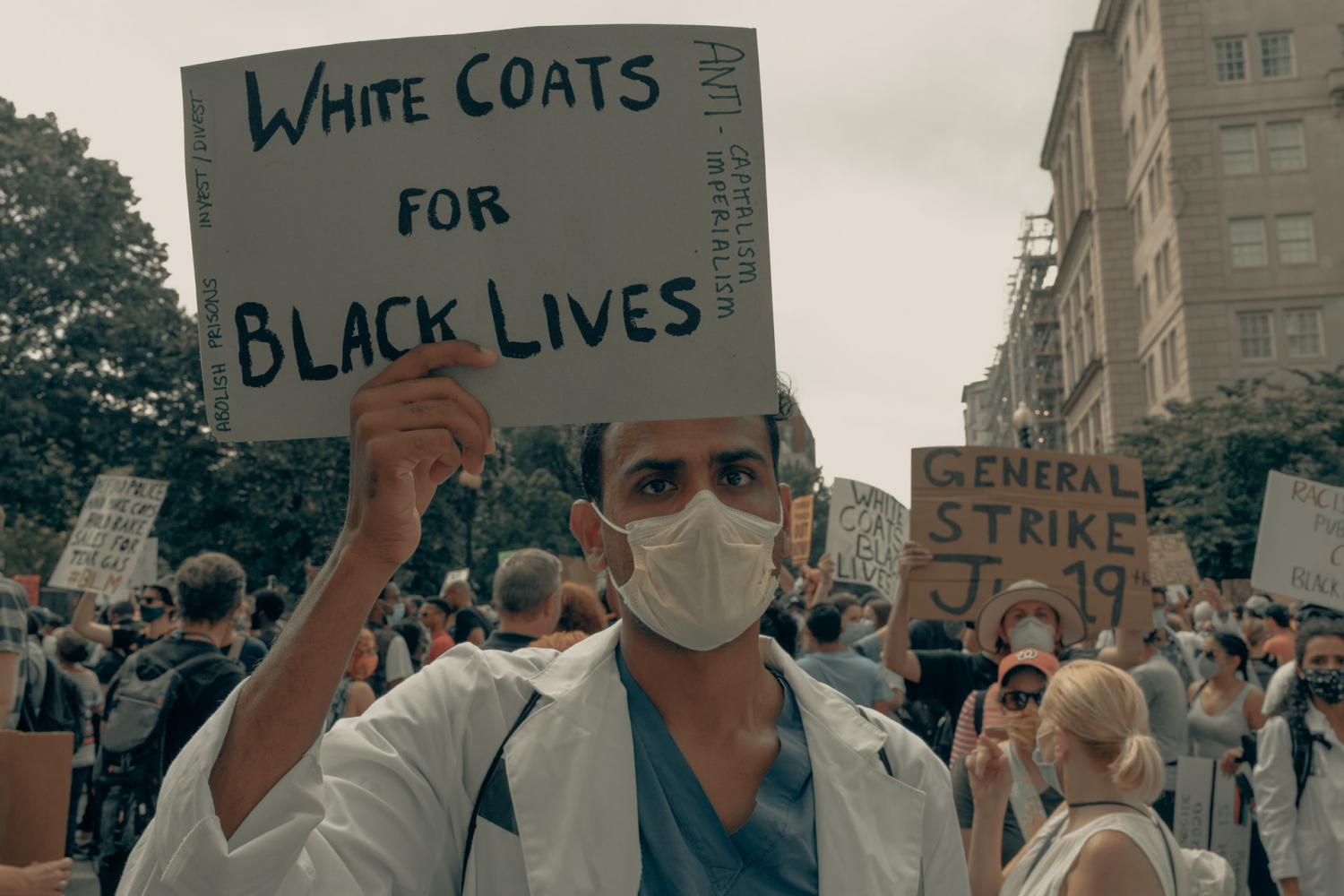

Tens of thousands of essential workers across the country took to the streets on Monday in a strike for Black lives and to demand justice for frontline employees. Black workers make up 17 percent of frontline employees, though they represent 12 percent of the total workforce, according to a 2020 Center for Economic and Policy Research report.
Monday’s strike for Black lives followed weeks of global protests spurred by the brutal killing of George Floyd by police officers in May. While Floyd’s killers are going to trial, Breonna Taylor, Elijah McClain and others have yet to see justice — an indication of the systemic racism the United States has yet to dismantle.
The strike for Black lives challenged companies to go beyond blanket statements supporting BLM
Organizers of Monday’s strike for Black lives called out companies including McDonald’s and AT&T.
“What we’d like [AT&T] to understand is if they’re going to go out and advertise that they believe black lives matter, take the steps you need to take to protect the lives of your black employees,” said Randall LaPlante, a member of the executive board of the Communications Workers of America Local 3806, told the Washington Post. “This is a company that has all the resources in the world to slow the spread of the pandemic, and they are failing.”
Companies have taken varied approaches to the strike. Airbnb, which in the past has been accused of failing to ensure hosts didn’t base rental decisions on race, stepped up with their employees.
Demands of the strike and why corporations should listen
Organizers of the strike include unions like the Service Employees International Union (SEIU), as well as social justice and environmental nonprofits — all recognizing the connectedness of racial, economic and environmental justice.
The demands on July 20 were four-fold:
Declare that Black Lives Matter — a necessary first step for progress.
Government officials at every level should rewrite election laws to ensure fair and safe voting, while collaborating with workers and community stakeholders to protect worker wellbeing through the pandemic.
Corporations should take steps to dismantle racism and economic exploitation wherever workers face it, including raising wages, providing adequate healthcare and paid leave during the pandemic, and listening to employees when planning for a safe workplace.
Finally, companies should provide the freedom for any workers to form a union.
Specific demands included a $15 and hour minimum wage, fully funded healthcare and paid sick leave for all.
Strikes were held in Chicago, New York, San Francisco, New Jersey, and across the U.S. in a total of nearly 200 cities.
Essential workers to companies: Back up words with deeds
Essential workers called on companies to stop hiding behind empty words.
“Companies like McDonald’s cannot on the one hand tweet that ‘Black Lives Matter’ and on the other pay us poverty wages and fail to provide sick days and adequate [protective equipment]," Angely Rodriguez Lambert, an Oakland McDonald's worker and leader in the Fight for $15 and a Union, said in a press statement from SEIU. “We're going on strike because McDonald's and other fast-food companies have failed to protect us in a pandemic that has ravaged Black and brown communities across the country. We’re going to keep joining together and speaking out until McDonald’s and other companies respond with actions that show they really value our lives."
Any nationwide labor strike would indicate severe dissatisfaction with working conditions. Not only does such action alert customers to unjust practices, but it also indicates that companies are leaving money on the table simply by not listening to the needs of their frontline workers. Happy employees can be 20 percent more productive than their unhappy counterparts. And companies that take good care of their employees find healthy stock price increases.
The bottom line: No company saves money by exploiting their workers.
AirBnB: An example worth noting
In a July 20 statement, Airbnb shared that it stands with the Strike for Black Lives and that employees are able to take paid time off to participate in peaceful protests.
The statement also lists some steps Airbnb has been taking to create a more equitable work environment and platform. Airbnb created a “Living Wage Pledge” that hosts can opt into to pay the workers who clean their homes between stays. Also listed are partnerships and methods the company has been using to combat discrimination on its platform, as well as a commitment to increasing diversity on its leadership team by 2021.
Airbnb admits there is much more it can do, which is a step ahead of other companies that spoke out this week.
Some companies respond with defensiveness
In its statement, McDonald's threw its support behind Black Lives Matter and claimed its employees are safe, protected and well-paid. Despite the bonuses and raises franchises are potentially handing out, the fact remains that cashiers are paid an average of $9 an hour.
Then, there’s the decision to go on the defensive in the face of criticism. AT&T said in its statement, “Everything we do meets or exceeds the CDC [Centers for Disease Control and Prevention] and local guidelines and has been a result of lots of consultation with medical community to minimize risk at our locations. Any suggestion otherwise is wrong.”
The July 20 strike made corporate leaders around the country take a look in the mirror.
The questions are clear for anyone in management: Am I supporting my essential workers? Am I meeting the demands these tens of thousands of people agree on?
These strikers are not asking simply for words of solidarity, but for action, specific steps — fight racism in the workplace, provide a living wage for all, take care of your sick employees, lift up those workers on the bottom of your totem pole. Those are the actions every business leader and elected official can work toward and accomplish.
Image credit: Clay Banks/Unsplash
This Johnnie Walker Bottle Is Actually Made of Paper
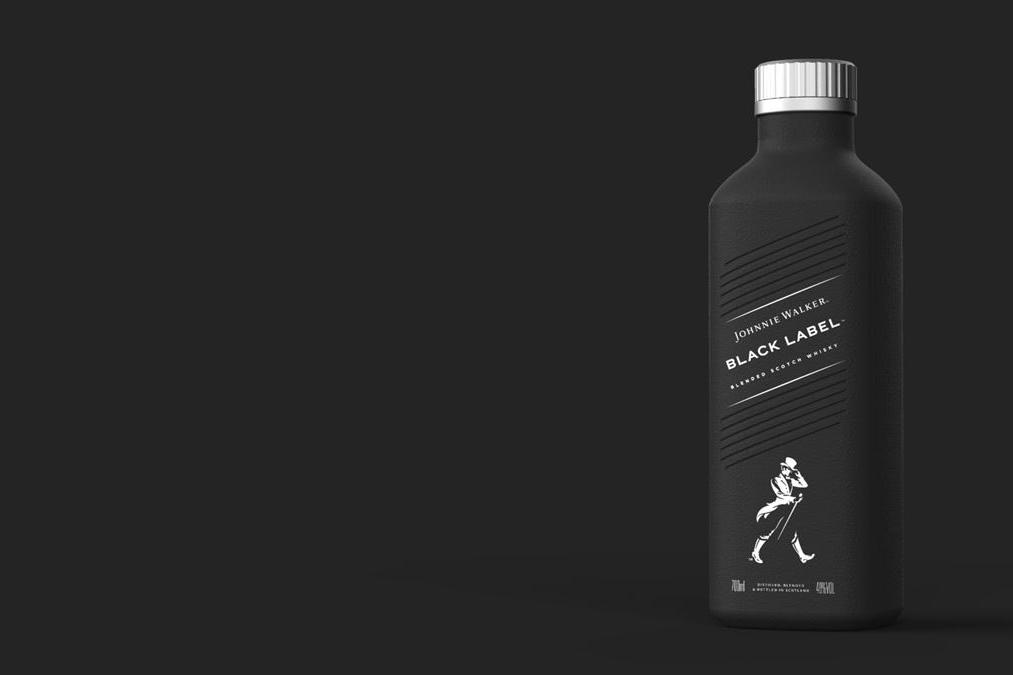
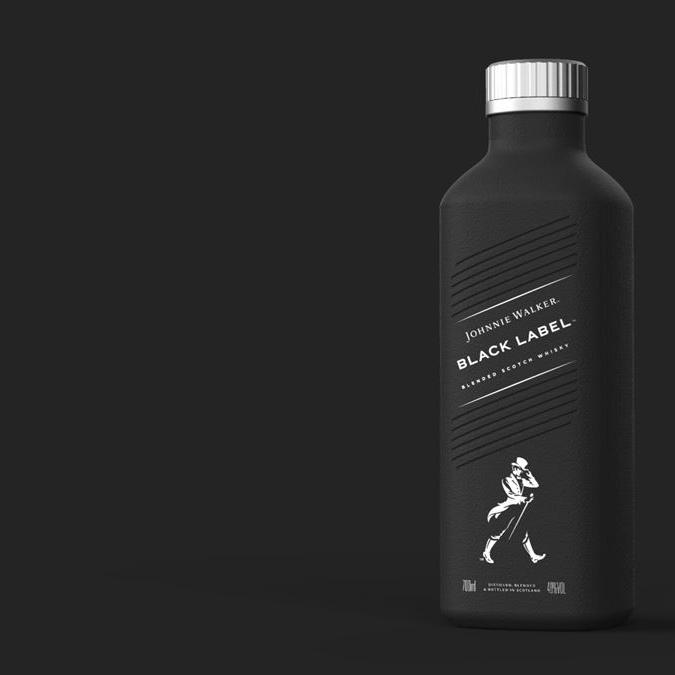
Whisky is aged in wooden casks or barrels before it’s bottled, but next year we should begin seeing Johnnie Walker appear on shelves in bottles made from paper.
Reducing the world’s dependency on single-use plastic packaging is a long, complicated journey. It could take generations for Plastic-Free July to transition from an awareness-raising campaign to a global norm all year round. In the meantime, some leading companies are beginning to collaborate on more sustainable packaging alternatives. That’s a significant step in the right direction, because cooperative ventures like these could provide a foundation for accelerating change.
A 2021 New Year's resolution: Johnnie Walker in paper bottles
A case in point is the new consortium Pulpex Limited, which launched earlier this month as a venture of the leading beverage maker Diageo, the parent company of Johnnie Walker, and the financial management firm Pilot Lite.
Pulpex Limited will produce 100 percent paper pulp bottles made from wood along with other renewable sources. The wood will be sustainably sourced, according to a Diageo press statement.
This is an especially interesting move by Diageo and the venerated Johnnie Walker brand because the company is actually not known for its use of plastic bottles.
Diageo sold off 19 of its brands in 2018 but still holds a portfolio of high-profile spirits including the iconic Johnnie Walker brand, which is typically bottled in glass. Another well-known Diageo brand is Guinness, which comes in aluminum cans.
Glass and aluminum are two of the most commonly recycled materials, which should give Diageo a sustainability edge over beverage makers that rely on single-use plastic bottles.
Digging a little deeper, though, glass bottles can involve an outsized carbon footprint, partly because they are much heavier than either plastic or aluminum. In addition to the carbon impact, the extra weight also raises shipping costs for the beverage maker and for the bottle recycler.
As for Guinness, paper may not have a weight advantage over aluminum, but it does have the advantage of recycling options that involve a lower carbon footprint compared to producing recycled aluminum. The paper bottles are both biodegradable and compostable.
The new bottles also support Diageo’s emphasis on innovation, which it is promoting as part of Johnnie Walker’s brand identity. In addition, the wood-sourced packaging enhances the aged-in-wood identity of spirits like Johnnie Walker.
Expanding the reach of paper bottles
From an environmental perspective, the brand advantages come into focus more clearly for two other companies that have joined the Pulpex venture, Unilever and PepsiCo. Both companies rely heavily on single-use plastic bottles, and they have both set ambitious goals for joining the circular economy.
PepsiCo has pledged to make 100 percent of its packaging recyclable, compostable, or biodegradable and use 25 percent recycled content in all of its plastic packaging by 2025. That seems like a ridiculously low bar, considering that most plastic beverage bottles are already recyclable, as are aluminum cans. The real problem is getting people to recycle them. In that regard, the compostable and biodegradable options for disposing of the Pulpex bottle may help PepsiCo reach its goal in a more meaningful way.
Unilever has established similar goals, but its task is more complicated because it deploys grades of plastic other than the PET commonly used in beverage bottles. The company says it is working with recycling stakeholders to improve recycling rates, and the Pulpex bottles should help relieve some of that burden.
In recent years, Unilever has also expanded its brand family to include Seventh Generation and other “natural” products. Paper packaging would help the company live up to the sustainability marketing of those brands, including an internal carbon tax that Seventh Generation established in 2016.
The paper advantage
At first blush, paper and transportable liquids seem to be an odd couple. Paper cups, for example, are fine for short-term use but begin to fall apart within days if not hours.
Nevertheless, Pulpex has come up with a patented technology that provides for a long-lasting, durable paper pulp bottle.
The challenge is getting costs down. Pulpex anticipates that support from beverage industry leaders will enable it to compete on cost with most glass bottles in the near future. The company is also working on a bottle that can withstand the hot-fill process (the industry term for when liquids and bottles are sterilized), and future plans include developing a version that can hold carbonated beverages.
It will be interesting to see if other leading companies join the Pulpex venture. Brands that rely on single-use plastic packaging have ample motivation to introduce more sustainable solutions into their supply chains, and could be willing to absorb any extra costs in order to establish an identity that demonstrates awareness of the ocean plastic crisis.
Even as the world is gripped in the COVID-19 outbreak, the ocean plastic problem is not going away, and cleanup efforts pale beside the amount of plastic waste entering the world’s oceans.
For example, the organization Ocean Voyages Institute recently completed the “biggest open ocean cleanup effort ever,” pulling 103 tons of fishing gear and other waste out of the water. Unfortunately, researchers estimate that millions of tons of plastic waste enter the oceans every year.
Some companies have turned to sourcing recycled plastic bottles and other products from retrieved ocean waste. That is a helpful approach that could provide an economic incentive for scaling up cleanup efforts.
However, until there are behavior changes at all levels of society the ocean pollution problem will persist, and a more sustainable, biodegradable alternative to plastic packaging will help make a difference.
Editor’s note; In case you missed our most recent Learn From Home Webinar on Plastic-Free July during the era of the coronavirus, you can watch it here.
Image credit: Diageo
Retailers Unite to Rethink Plastic Bags
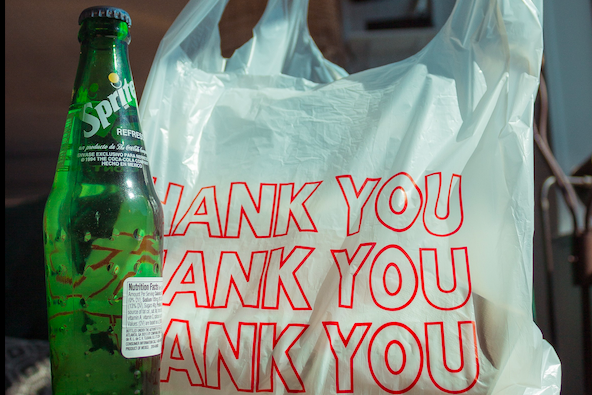
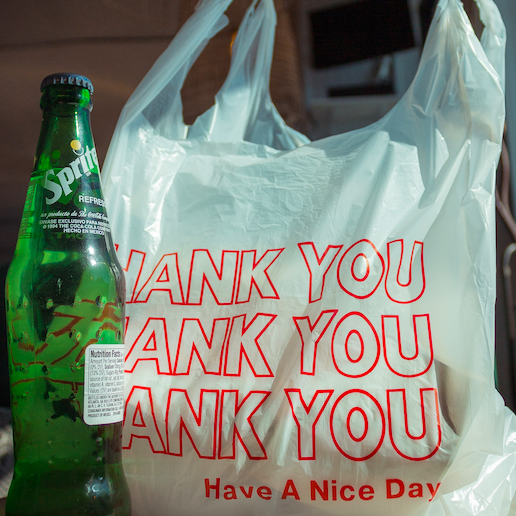
Retailers sputtered for quite a while before they started implementing more uniform face mask policies, but they now appear to be unified in rethinking disposable, single-use plastic bags.
This week, leading retail chains including CVS, Target and Walmart joined forces with Closed Loop Partners to see if they can find a solution to a pesky problem that has long dogged them: a more responsible and sustainable solution to standard throwaway plastic bags.
They were joined in this effort by Kroger and Walgreens, the design consultancy Ideo, and the nonprofits Conservation International and the Ocean Conservancy.
The group, which calls itself the Consortium to Reinvent the Retail Bag, has so far committed $15 million to reinvent the bags we receive at the checkout counter.
The effort is important, as estimates have suggested Americans alone consume 100 billion single-use plastics bags annually. Out of that total, less than 10 percent are recycled. Add the impacts of the ongoing COVID-19 pandemic, and we’re in the early throes of a waste management crisis.
So far, the devil is in the details when it comes to envisioning the new plastic bags, or any containers we could receive at grocery and pharmacy checkout stalls in the future. Will they be compostable or readily biodegradable? Will they be made out of a uniform material, so that they can be recycled in just about every municipal waste stream? Could the result be some reusable, box-like contraption that would be far more seamless to lug around than those shapeless plastic bags?
Furthermore, despite the enthusiasm some states and cities shared for reusable shopping bags before the novel coronavirus reared its ugly head, some research has suggested their environmental footprint presented its own host of problems. The data suggest consumers have to use those cotton or recycled PET bags many times to justify their overall environmental impact.
A big problem plastic bags have, however, is one of optics. Supporters and opponents of single-use plastic bags can argue and go as far down a rabbit hole as they wish, but research the Ocean Conservancy took on in 2018 suggests that disposable plastic bags rank in the top 10 items found on beaches and in waterways across the globe. We love our plastic bags – until we see them in the natural environment.
The big challenge this Beyond the Bag coalition has, however, is delivering results in the long term. It’s going beyond reinventing what we put our items in after we swipe our debit cards and return home. Changing consumer behavior will be a huge part of this herculean effort, too.
Previous ambitious, scaled-up efforts can give us a hint of how this campaign may proceed.
The Gates Foundation, for example, launched an ambitious and well-funded effort seeking to reinvent a Victorian invention, the flush toilet, in the name of clean water and sanitation. The decade-long quest resulted in the debut of a $350 debut “tiger toilet,” powered by worms. While the innovation was lauded, widespread adoption has been another story.
Sign up for the weekly Brands Taking Stands newsletter, which arrives in your inbox every Wednesday.
Image credit: Griffin Woodbridge/Unsplash
On COVID-19 Prevention, Retailers Lead and the President Follows


High-profile retailers have been struggling through the COVID-19 crisis on multiple fronts, and employee safety is one of them. Even something as simple as face masks has become fraught with danger. The jumble of inconsistent state-based policies and contradictory messages from the president himself have exposed frontline workers to both verbal and physical abuse. Finally, in recent days, leading retailers have taken matters into their own hands, and that appears to have sparked a new position from the president.
Pushback on basic health precautions
It is not unprecedented for public health experts to receive pushback on policy and guidance. For example, in the U.S. many drivers still refuse to wear seat belts, funding for research on gun violence as a matter of public health is taboo, and there is a small but aggressive movement against childhood vaccines. Even basic handwashing is an ongoing concern.
However, the COVID-19 crisis has plastered a unique layer of visceral emotion onto public health issues, and it is playing out in public. Wearing a face mask is a simple, basic health precaution, but it has become a matter of intense personal identity, evoking over-the-top responses that are more commonly associated with gun extremism than, say, having to wear shoes and a shirt in a store.
Gun safety and COVID-19 safety
In terms of retailer action, the comparison to gun extremism is an apt one. In the absence of national leadership on gun safety, in recent years Dick’s Sporting Goods and other leading retailers have taken up the call for common sense solutions.
In particular, Kroger and other leading retailers have begun to focus on employee and shopper safety issues involving right-to-carry laws.
Similarly, retailers have begun to act in the absence of national leadership on face masks. Costco and Apple were early adopters of mandatory masks, beginning in May.
However, through May and June many states continued to de-emphasize masks. Even as the pandemic spread widely throughout the U.S., the president refused to demonstrate leadership on masks and repeatedly appeared in public without a mask.
That foot-dragging has put retail workers in the line of fire, facing customers who become verbally and physically aggressive when simply asked to wear a mask in a store.
The failure of national leadership is also putting retail customers in jeopardy. For example, earlier this week a Walmart shopper in Pennsylvania was spat on when she asked another customer to wear a mask.
Retailers lead on COVID-19 mask policies
Some state governors finally began to tighten up their mask policies in July, but as of this writing 10 states still have no universal policy, and at least one state leader — Gov. Brian Kemp of Georgia — has thwarted efforts by local mayors to establish mandatory mask protocols in their jurisdictions.
Against this backdrop, in July the Costco and Apple mask trickle turned into a flood.
Starbucks led the pack. On July 9, the company announced that it would update its safety protocols to include wearing masks at all of its stores, effective July 15.
Of interest, Starbucks uses the same “respectfully ask” language that it has previously deployed to discourage customers from bringing guns into its stores: “We respectfully require customers follow social distancing and safety protocols recommended by public health officials, including wearing a facial covering when visiting our stores,” Starbucks wrote on its updated store policy. “It is our responsibility to protect our partners and comply with local public health mandates," it added, with the term "partners" referring to employees. "As such, our partners have the right and responsibility to refuse service to customers who are not wearing facial coverings.”
Best Buy and Panera Bread followed suit soon after the July 9 announcement. By July 16, Walmart and Target announced mask requirements as well.
Business groups push back against the anti-maskers
Finally, on July 17, the organization Business Roundtable issued a nationwide call to action, encouraging all companies to require masks regardless of state policies that fail to encourage them:
"Rising infection rates around the country are putting public health and our economy at grave risk. Failure to bring the pandemic under control will have devastating, long-term consequences for millions of Americans,” the organization wrote. "One of the most effective things we can all do to protect public health and the economy is to wear face coverings in public settings, especially when other social distancing measures are difficult to maintain.”
Business Roundtable has also joined a series of lobbying efforts with other business organizations in support of a nationwide mask policy, including a July 2 open letter addressed to the president, vice president, and the governors of Maryland and New York.
It seems that business leaders are now responding in force.
As of July 20, USA Today reported that more than two dozen national retailers have joined the effort, including Apple, CVS, Lowe’s, Trader Joes, Verizon and Whole Foods, among others. That includes Winn-Dixie, which is concentrated in southern states where the COVID-19 crisis is spinning out of control.
Coincidentally or not, on July 20 the president tweeted a dramatic-looking black-and-white official photo of himself wearing a black face mask, similar to the one that Joe Biden, the Democratic presidential candidate in the 2020 election cycle, has been wearing all along.
It was the first time since the beginning of the pandemic that the president forcefully celebrated wearing masks, though with the following message:
“We are United in our effort to defeat the Invisible China Virus, and many people say that it is Patriotic to wear a face mask when you can’t socially distance. There is nobody more Patriotic than me, your favorite President!”
Aside from the racially-charged rhetoric, the all-about-me framing and the freighted reference to patriotism, the message still doesn’t carry the weight of any type of real leadership. Instead, the tweet positions the president as following guidance from “many people” rather than setting the standard himself.
If by “many people” he meant many leaders in the business community, that is the only place where national leadership is residing today as the death toll rises and the suffering needlessly continues.
Sign up for the weekly Brands Taking Stands newsletter, which arrives in your inbox every Wednesday.
Image credit: Anna Shvets/Pexels